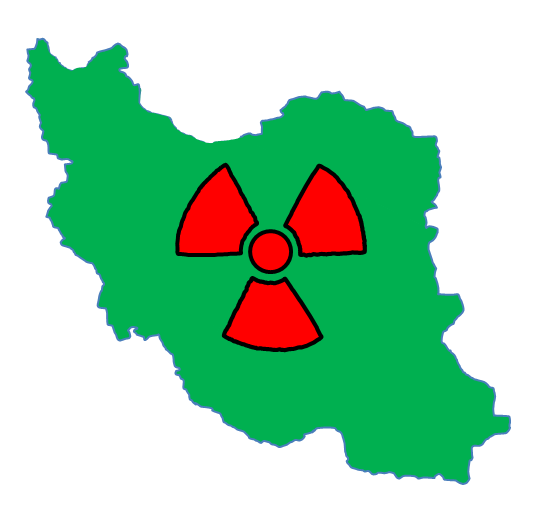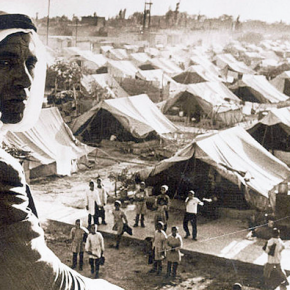As the dust settles on America’s exit from Iraq, speculation over the possibility of the next Mideast war has resumed. The recent death of an Iranian scientist, Mostafa Ahmadi Roshan, has fuelled concerns. Especially given that Tehran knows who is to blame. Predictions that it may close the Strait of Hormuz, provoking a US response, have been making the rounds.
Misreported “facts” have crystallised into myth. Earlier this month, The New York Times, known for its ability to set the news agenda,claimed matter-of-factly that threats from Iran, aimed at both the West and Israel issued from the country’s nuclear program, which, according to a recent assessment by the International Atomic Energy Agency has a military objective.
This erroneous summary (the report says no such thing- a fact subsequently admitted by the ‘Times, but not printed) was pointed out, along with troubling misrepresentations on the same subject in PBS reports and elsewhere, by Fairness and Accuracy In Reporting (FAIR). FAIR also judiciously reminded their followers of lazy reporting by the newspaper on the threat posed by Saddam Hussein’s pre-invasion Iraq not too long ago.
So what of the IAEA report released last November, which despite some press mishandling, remains the centrepiece of a creeping casus belli? An under-appreciated article in the New Yorker by Seymour Hersh last year made some striking observations on the findings of the report.
Hersh wrote in November that Richard Kelley, a former senior figure at the IAEA, informed him that the report’s findings were old news, which led Kelley to speculate why this same stuff is now considered new information by the same reporters who covered such conclusions all the way back in 2003. Kelley added that a significant amount of the material referenced in the IAEA paper was drawn from a single source: a laptop¦ allegedly supplied to the IAEA by a Western intelligence agency, whose provenance could not be established.
As Hersh also reports, a change in tone from the IAEA over Iran’s nuclear program appears to have coincided with a change at the top of the organisation. The new head, Yukiya Amano, who replaced the respected Muhammad ElBaradei, was described in a wikileaks-released US diplomatic memo as being solidly in the U.S. court on every strategic decision, from high-level personnel appointments to the handling of Iran’s alleged nuclear weapons program. Previous IAEA reports did not emphasize a possible military aspect to the program in the same way.
While the threat of Iranian nuclear capacity is being talked up, the possibility – even legality- of constructive diplomatic America conversations with Iran may be strangled by proposed legislation that has already been passed by the House of Representatives. The Iran threat reduction act effectively criminalizes discourse with Iran by any member of the American government, including the CIA, except in highly restricted circumstances. Many commentators see this as an alarming move, despite it not yet passing the senate.
Despite all the above, it goes without saying that the prospect of a bomb-equipped Iran is very worrying indeed, and only the naive must think that the possibility cannot be credited. That being said, it is not absolutely certain that Iran will decide to develop a weapon. Even less credible is the likelihood of a quixotic nuclear strike on Israel that would result in certain retaliation and the abrupt undoing of several millennia of Persian civilisation.
What about the ultimate nightmare: that a weapon might fall into the hands of terrorists? Leonard Weiss, a strategic analyst at the Centre for International Security and Cooperation at Stanford University, reflecting on this scenario in 2009, wrote that the transfer of any such material, if registered by any of the neighbouring US-allied states, would be treated as if it came from Tehran and result in Iran’s utter destruction” if a device were used. Reassuringly, Weiss and others, see an Iranian exercise of apocalyptic self-abandonment at that suicidal magnitude of stupidity as unlikely.
The greatest victims of a future war, as ever, and however started, would be innocent civilians caught beneath the bombs, spectators to the criminal brinkmanship of regional political elites that have long learned to claim that they act in the best interests of their people even as they raise hell in their name.
Confronting the doctrine emerging from the American–Israeli right that no option but military force could be used to decisively resolve this crisis must surely be the task of any reflective, self-respecting individual who gives two hoots about the realities of war. Much more so, given the on-going and highly instructive legacy of Iraq, and the stakes at hand this time around, according to respected analysts.
Nuclear Iran image courtesy of futureatlas.com. Published under a Creative Commons license.






Engaging in constructive dialogue is undoubtedly better than the cataclysmic possibilities of another military campaign in the region. The alternative is deeply worrying.
The 2003 scenario is being replayed to rapturous applause by the NYT, Congress, most of the rest of the media, and the Empire’s British lapdogs. It worked the,, and it seems to work now. Whil Iran is undoubtedly not in the game to nuke Israel, Israel seems to be in the game to seriously damage Iran. Since Iran is surrounded by US military bases and has seen up close how devastating American intervention has been in its western and eastern neighbour, it’s decision to acquire a nuclear deterrent – which I don’t doubt for a moment – is an absolutely rational decision, against which I find no objectively valid logical argument. Nuclear-armed states have, so far, always found a way to limit their military engagements to levels that do not risk the use of these weapons, and the same will’ happen in the middle east once the three regional powers (Iran, Israel and Saudi arabia) are nuclear-armed. The alternative solution – nuclear states such as the US and Israel disarming – is of course preferable, but there the old saying applies: “when pigs fly”. So, let Iran have its bomb. It will increase regional stability.